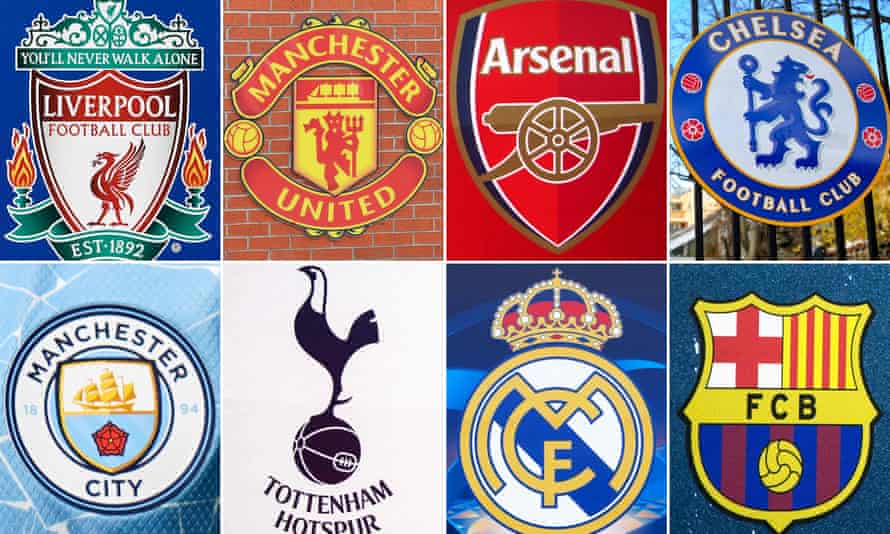The football world is still coming to terms with Monday’s announcement by Europe’s ‘leading clubs’ about the European Super League.
Arsenal, Spurs, Inter, Milan, Madrid, Atletico, City, United, Liverpool, Chelsea, Barcelona and Juventus intend to pioneer the European Super League.
They intend to begin playing the Champions League replacement in August. By that time, it is forecasted that Bayern, Dortmund and PSG will have joined them.
Every major football governing body has released a statement of condemnation, while fans are outraged. That the news came in advance of UEFA’s announcement of the new Champions League format was not a mistake.
Read: Steven Gerrard Showing Arteta, Solskjaer, Lampard How It’s Done
How will it work?
The European Super League will consist of 15 ‘founders’ and 5 other teams who qualify by as yet unknown means.
Teams will play in two groups of ten to reach the knockout stage. The top three teams in each group qualify for the quarterfinals automatically. Then, the fourth and fifth place teams will play a two-legged playoff to reach the quarter finals.
From then, the knockout rounds are the same as the Champions League. Two-legged quarter and semi finals before a single fixture final.
The ESL teams will continue to play in their domestic competitions. This is perhaps the biggest point of contention, as they will be met with huge resistance from those same domestic organisations.
How will they get away with it?
UEFA has already threatened that participating players will be banned from playing for their national teams. The European football government will also undoubtedly fight the new league in the courts.
However, it may all be for nothing. While nobody seems to want the Super League to happen, stopping it is another task.
When the Premier League was founded in 1992, the same threats about international football were made, but never materialised.
Read: European Super League Announced by 12 Teams
For example, there are calls for the six participating English teams to be kicked out of the Premier League. However, a three quarters majority of teams is needed to make a change to the league. Without those six teams, that is a majority they won’t get.
What ultimately makes the Super League unstoppable is that the participating teams have a massive, captive audience. It will make money, guaranteed. The absence of those teams from their domestic competitions will be more damaging to those leagues than the Super League. They can effectively hold their domestic organisations to ransom.
As well as that, broadcasters will undoubtedly want a slice of the pie. This could pave the way for the likes of Netflix or Amazon to implement the type of streaming service that the sport has arguably needed. The anticipated broadcasting deals will blow the current TV contracts out of the water.
The founding clubs intend to create a behemoth, a closed-shop with perpetually increasing profits. To the dismay of football fans, they will get their way.










